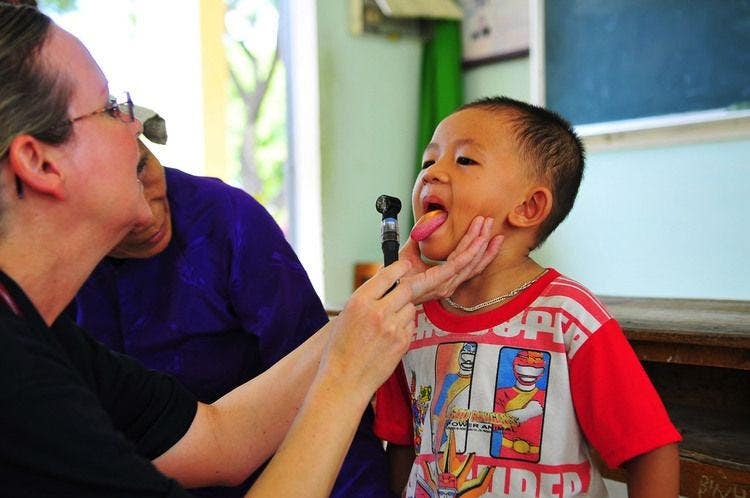3 Reasons to Consider Becoming A Pediatric Nurse Practitioner

According to the American Association of Nurse Practitioners, only 8.3 percent of nurse practitioners specialize in pediatrics. This leaves a void ready to be filled by the next generation of np graduates. If you’re wondering whether pediatric care could be right specialty for you, consider whether you enjoy working with children, whether you have exemplary bedside manner, and whether you want job security.
Pediatric nurse practitioners (PNPs) provide care for patients ranging from infants to young adults, typically age 16. Much like pediatricians and depending on the state in which they practice, they can perform medical exams, diagnose illnesses, and devise treatment plans for their patients. According to Discover Nursing, pediatric nurse practitioners usually work with pediatricians in hospitals and other medical centers, but some also run their own private practices.
Pediatric nurse practitioners not only hold advanced nursing degrees but must also obtain certification through the Pediatric Nursing Certification Board. As you advance your education, Discover Nursing suggests selecting courses in child health and psychology to obtain the necessary knowledge for this specialty.
1. You Have a Way With Kids
2. You’re Comfortable Playing a Supportive Role
Pediatric nurse practitioners spend much of their time with concerned adults, the relatives and friends of young patients. Sandra Mott Ph.D., a pediatrics nurse, told NurseZone that supporting these worried adults can be one of the most challenging aspects of the job, and also one of the most rewarding. Children often mimic an adults reaction or response to news. Therefore, keeping all parties calm and positive is important for the overall care of the child.
It takes a nurse with a great bedside manner to be there for concerned parents and other adults, providing support, guidance, and information as required. Therefore, it is important for pediatric nurse practitioners to be present in each moment to provide the patient’s caregivers the attention they need, in addition to the child patient.
3. The Demand for PNPs
Nurse Practitioner Schools believe that the relatively small number of pediatric nurse practitioners, compared with other nurse practitioner specialties, is helpful for these professionals. Pediatric nurse practitioners face less competition and more opportunities than other specialists in the market place, including family NPs and adult NPs, as there are fewer Americans that have their particular skill set. In addition, the U.S. Bureau of Labor and Statistics claims the job growth for nurse practitioners (all concentrations) is 34 percent from 2012 to 2022.
Becoming a pediatric nurse practitioner can be a rewarding career move for the right nursing professional. According to Discover Nursing, pediatric nurse practitioners in America typically earn between $63,000 and $85,000 a year, compared to a pediatric nurse’s annual salary of between $36,000 and $47,000, making pediatric nurse practitioner a great career choice for not only a rewarding experience, but for high earning potential as well.